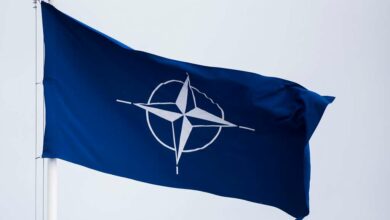KABUL, Afghanistan – A NATO helicopter crashed in Afghanistan's east on Monday but there were no apparent casualties, officials said, a reminder of the dangers of the war after 38 people were killed in an air incident two days ago, the largest single loss of foreign forces in 10 years.
A worrying surge of military deaths is being matched by record casualties among civilians, who continue to bear the brunt of a war that appears to have become bogged down despite claims of success from both sides.
On Monday, three hundred angry Afghans took to the streets in central Ghazni province carrying the bodies of two people they claimed had been killed during a raid by ISAF troops.
Civilian casualties caused by foreign troops hunting insurgents have long been a major source of friction between Kabul and its Western backers. UN figures show such casualties hit record levels in the first six months of 2011, although it blamed 80 percent of them on insurgents.
NATO officials are still investigating the cause of a helicopter crash two days ago that killed 38 people, including 30 US soldiers, seven Afghan commandos and an Afghan interpreter.
The Taliban claim to have shot down that troop-carrying CH-47 Chinook helicopter in central Maidan Wardak province and a US official in Washington, who asked not to be identified, said that helicopter was believed to have been shot down.
"We're still not aware of the cause of the incident, this is a very vital part of the investigation," said Brigadier General Carsten Jacobsen, senior spokesman for the NATO-led International Security Assistance Force (ISAF).
"The area in which the helicopter was operating was known to be not free of insurgents," he told a news conference.
ISAF has imposed a security crackdown on the area while the grim task of recovering the aircraft and the bodies of those killed is completed, although some residents have complained about some of the measures that have been taken.
"I can only advise (civilians) not to try to approach the site of the crash while the investigation is ongoing," Jacobsen said .
Separately, another ISAF helicopter made a "hard landing" in Paktia province, a volatile area in Afghanistan's east, on Monday, other officials said.
"There were no casualties," another ISAF spokesman Lieutenant Colonel David Doherty said. An investigation was underway but it appeared there was no enemy activity in the area at the time.
Taliban spokesman Zabihullah Mujahid claimed in a text message sent to Reuters that the Islamist group had shot down the helicopter, another Chinook, in the Zurmat district of Paktia, killing 33 American soldiers.
The Taliban often exaggerate claims in attacks against foreign troops and Afghan security forces and government targets, although they correctly identified the number killed in the weekend's Chinook crash in Wardak.
DEVASTATING TOLL
At least another seven ISAF troops were killed in a ghastly 48 hours for the coalition. Four were killed in two separate attacks on Sunday, including two French legionnaires.
The spike in casualties – at least 383 foreign troops have been killed so far this year, almost 50 of them in the first week of August – comes at a time of growing unease about the increasingly unpopular and costly war.
US and NATO officials issued statements vowing to "stay the course" in Afghanistan after the deadly weekend Chinook crash but the recent devastating death toll will likely raise more questions about how much longer foreign troops should stay in Afghanistan.
Afghan President Hamid Karzai spoke with US President Barack Obama by telephone overnight and shared condolences over the Wardak crash, Karzai's palace said in a statement.
"The US president thanked the Afghan president and emphasized the fight against terrorism, which is a threat for security in the region and the world, and said the people of Afghanistan and the US unitedly stand against the terrorists and their sacrifices will be never forgotten," it said.
The deaths came barely two weeks after foreign troops began the first phase of a gradual process to hand security responsibility over to Afghan soldiers and police.
That process is due to end with the last foreign combat troops leaving at the end of 2014, but some US lawmakers are already questioning whether that timetable is fast enough.
Karzai has already said "enemies of Afghanistan" – the Taliban and other insurgents – want to disrupt the process.
In Ghazni, deputy police chief Mohammad Hussain said almost 300 people had gathered to carry the bodies of what they said were two civilians to the provincial governor's office after an overnight raid by ISAF in the Khogyani district.
ISAF earlier said there were no reports of civilian casualties but Jacobsen said a man had fired on an ISAF patrol from inside a house with his family around him.
"We are very much certain that ISAF could not be aware that the man was shooting from a house where his family was inside," Jacobsen said, adding that an investigation was underway.
On Sunday, Karzai ordered an investigation into a NATO air strike that allegedly killed eight civilians in volatile southern Helmand province on Friday.
UN figures show that 1462 Afghan civilians were killed in conflict-related incidents in the first six months of 2011, the deadliest period for civilians since the Taliban were toppled by US-backed Afghan forces in late 2001.
Foreign military deaths also hit record levels in 2010 with 711 killed, with 2011 following a similarly bloody trend.



